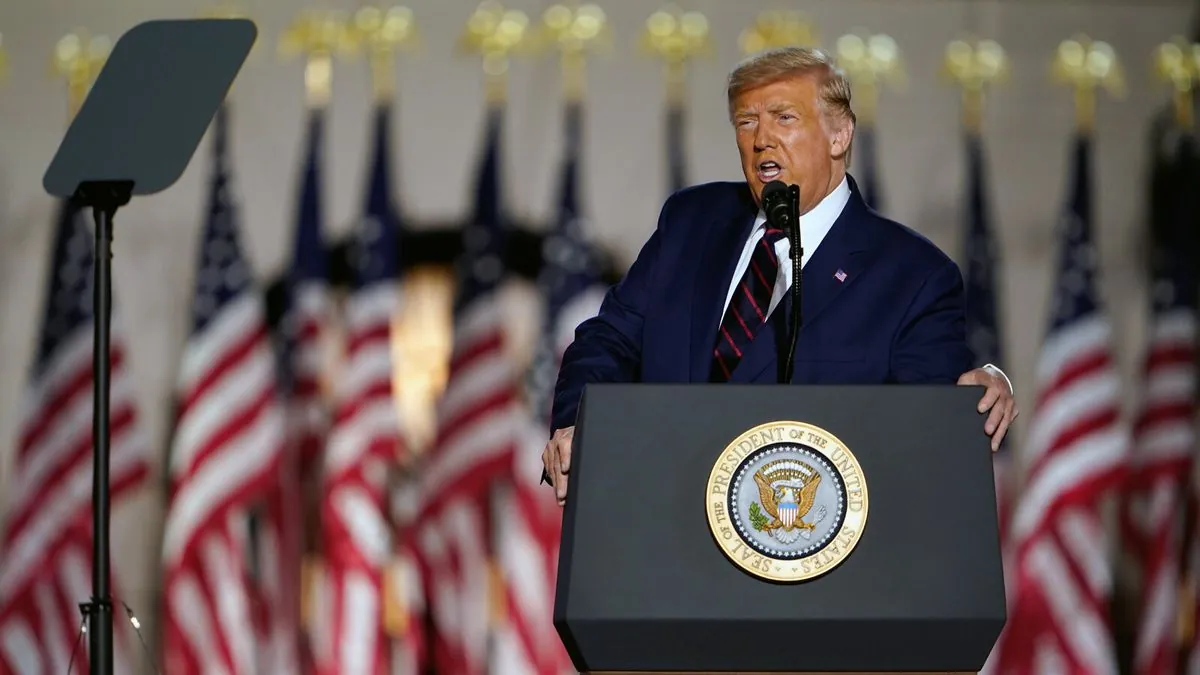Trump's TV Ratings Claims Challenged by Convention Viewership Data
Analysis of Fox News ratings during the Democratic Convention questions Trump's self-proclaimed status as a "Ratings Machine". Despite his appearance, the network's viewership remained behind competitors.

Donald Trump often relies on specific metrics to gauge his political popularity, including selective polling, crowd sizes, stock market performance, and television ratings. Recently, these claims were put to the test during the Democratic National Convention.
On August 22, 2024, as Vice President Kamala Harris prepared to accept the Democratic presidential nomination, Trump announced on Truth Social that he would provide commentary on Fox News following her speech. This led to a dispute over who initiated the call, with Trump insisting that Fox News contacted him.

The former president's appearance on Fox News, however, didn't significantly boost the network's ratings. During the convention, Fox News consistently ranked third behind CNN and MSNBC in viewership. In the hour of Trump's appearance, Fox News saw only a modest increase of about 170,000 viewers, reaching 2.8 million. This was less than a third of the audience tuning into CNN and MSNBC's convention coverage.
"I don't have to make calls to go on TV, or anything else — They call me! It's called Ratings, I guess, and I'm the 'Ratings Machine!'"
This performance challenges Trump's long-standing claim of being a "Ratings Machine". During his 2016 campaign, he frequently boasted about the success of his show "The Apprentice", despite it being the top-rated show in the country only once, in its premiere season.
The data from the convention suggests that Trump's ability to draw viewers may not be as strong as he claims. If Fox News believed he would significantly boost ratings, they likely wouldn't have attempted to end the interview quickly, transitioning to Greg Gutfeld's show.
It's worth noting that television ratings, while important for networks, don't necessarily reflect political support. Factors such as the nature of the event and the typical audience demographics of each network play significant roles in viewership patterns.
As the 2024 election approaches, it will be interesting to see how Trump's claims about his popularity align with measurable metrics like television ratings and polling data. The discrepancy between his assertions and the actual numbers highlights the importance of scrutinizing such claims in the political landscape.


































